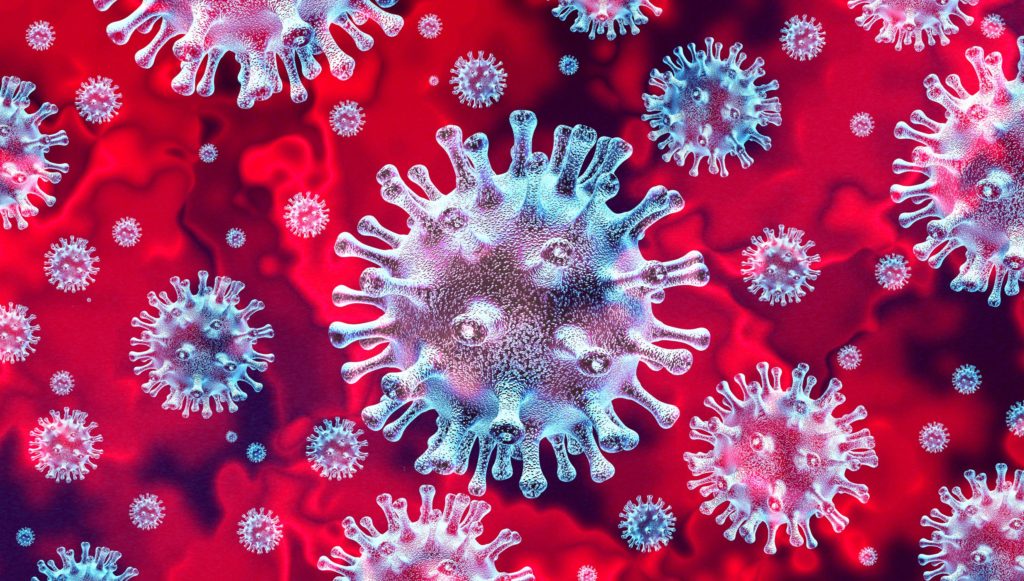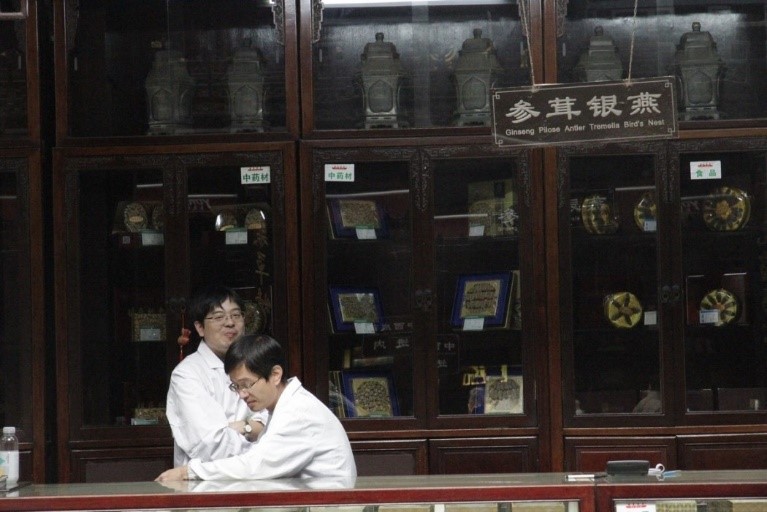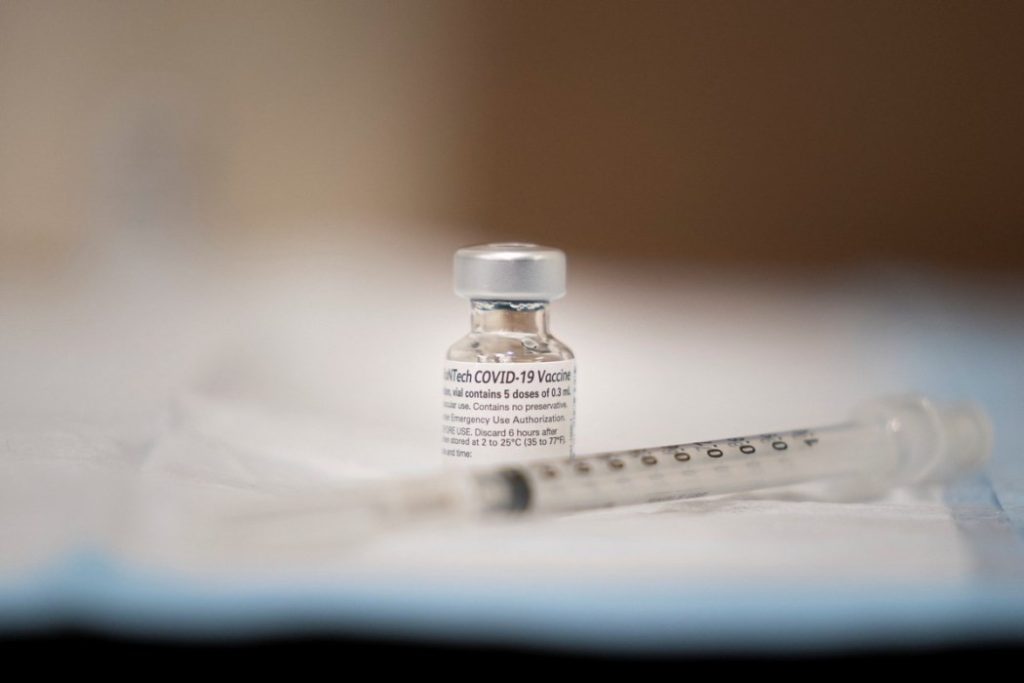https://philaholisticclinic.com/coronavirus/coronavirus-and-tcm/
Coronavirus-19 affects different people in different ways. Infected people have a wide variety of reported symptoms – from mild symptoms to serious illnesses.
The attack rate or transmissibility (how quickly the disease spreads) of a virus is indicated by its reproductive number (Ro, pronounced R-nothing or r-zero), which is the average number of people to whom a single infected person has transmitted the virus.
The WHO estimates (on January 23) Ro at 1.4 to 2.5.
Other studies have estimated a Ro between 3.6 and 4.0 and between 2.24 and 3.58.
Preliminary studies had estimated Ro at 1.5 to 3.5.
An outbreak with a reproduction number below 1 will gradually disappear.
For comparison, the Ro for common flu is 1.3 and for SARS 2.0.

In retort to Paul Stapleton’s comment articulating his doubts about Pekin’s claim that TCM heals Coronavirus-19, I bet that we shouldn’t be too fast to deny curative remedy only because it is outside of well-known frames of reference.
In fact, Beijing has not claimed Chinese medicine as a cure for Coronavirus-19. Rather, the claim is that it can alleviate symptoms and aid recovery. In addition, doctors in the PRC mostly advocate an integrated approach that combines Western medicine and Chinese medicine. Given the popularity of Chinese medicine in China and Hong Kong, it would seem rather premature to simply dismiss it as a placebo. I certainly agree that we would all love to see more data and transparency from Beijing, with better communication of which treatments worked better than others. A large number of relevant studies have been published in Chinese, although there are several scientific reports published in English. However, we need clearer explanations.

Separate Medicine and Politics
Unfortunately, one of the main problems we face is trust and responsibility. Ideally, medicine should not become political. As we know, the policy has hampered efforts to deal with Coronavirus-19 in several countries, mainly in the United States. Making Traditional Chinese Medicine a matter of political demands, whether to make it venerable or discredited, distorts what medicine really deals with. Doctors of any type of medicine, Western or Chinese, aim to save lives after years and sometimes decades of training. Shouldn’t we be grateful to everyone who goes through so much to alleviate human suffering? But it takes effort to understand unknown healing practices that are based on cultural resources based on theories like yin yang and qi.
Regarding Hong Kong, while political authorities praise the merits of Traditional Chinese Medicine for Coronavirus-19, little has been reported that dozens of TCM doctors worked to provide health care and assist thousands of protesters during the 2019 protests. Some news outlets reported that many people on the front lines have sought acupuncture and Chinese herbs for injuries such as blunt trauma, burns, and the effects of tear gas and pepper spray to avoid arrests in hospitals. I dare to argue that in real emergencies, placebos cannot be the only explanation for the effectiveness of Chinese medicine.
Coming back to Coronavirus-19, it should be noted that Western doctors struggled just as much with everyone to find effective treatments. It is worth noting that when it comes to biomedicine, we have resorted to old therapies. The most effective Western drug, dexamethasone, entered widespread use as an anti-inflammatory steroid in the 1950s. Oxygen therapy became popular in the 19th century, as was the prevention of wearing masks.
While the much-needed and coveted Coronavirus-19 vaccines are new, the methodology for some of them is still based on Edward Jenner’s 1796 smallpox vaccine. Vaccination, in turn, was based on the ideas of variolation that have existed for centuries. Thus, while modern drugs are often perceived as new, they often survive as old treatments.
East-West boundaries
In recognition of the concern about the old and the new in medicine, I invite you to look beyond China and Hong Kong to better understand the international practice of Chinese medicine. In the East Asian region, closely associated with Chinese medicine, Korean medicine continues to enjoy popularity and prestige in South Korea. Avoiding East-West restrictions, traditional therapies sit comfortably in a high-tech, science-driven community.
In an equally complex Japan, Kampo (Traditional Japanese Medicine) also maintains its popularity and respect. Likewise, in Singapore and Taiwan, the state includes Chinese medicine in its respective educational and administrative tasks. Further south, the Australian federal government includes Chinese medicine within its regulatory competence in terms of education and clinical practice.
TCM in the USA
In the United States, the National Institutes of Health spends considerable federal funds to employ researchers to better understand Chinese medicine. Prestigious medical institutions such as Johns Hopkins, Memorial Sloan Kettering, Cleveland Clinic, UCLA, Harvard University and more, feature Chinese medicine research and practice programs. In short, Chinese medicine is more than the way we know it in China and Hong Kong. It has already become a global medical phenomenon, with bodies like the World Health Organization working to understand it better.
I started this article with the problem of Chinese medicine and Coronavirus-19. While China suffered early from Coronavirus-19, South Korea had the second-highest disease rate in the world in March 2020. While China only started using Chinese medicine after weeks of struggling with the shortcomings of Western treatments, the South Korean state also hesitated to use Korean medicine. However, despite the technocratic state and in response to popular demand, Korean medical doctors established and ran two telemedicine centers in Daegu and Seoul for patients with Coronavirus-19.
Willing to contribute to the best of their ability, they volunteered their services free of charge and provided free herbal remedies and supplies to all of their patients. According to official statistics, 20 percent of Coronavirus-19 patients in South Korea have recovered thanks to Korean medicine.
As this is an ongoing crisis, patients apparently couldn’t wait for clinical trials. The perseverance of the circumstances called for rapid reaction and response. Admittedly, the South Korean state did not politicize medicine for nationalist purposes during the pandemic. Instead, South Korea’s department of public health chose to highlight their technocratic solutions, known as the Three Ts – Testing, Tracking, and Treating. Probably believing that communities outside of East Asia may not understand Korean medicine, the government simply chose to highlight actions that are easier for people to take as effective. Humility can be a virtue, not nationalism.
Harvard medical historian Charles Rosenberg analyzed the rise to the authority of Western medical doctors in the United States in the early 20th century. Their ability to speak as a professional medical authority was not inevitable, but rather can be attributed to the rise of bacteriology and laboratory medicine along with the growing growth of large state bureaucracies.
Affirming the primacy in medicine also meant creating boundaries around curative therapies rooted in other cultures. If 2020 and 2021 have taught us anything, it is that the limitations of Western medicine reveal the possibility of the concomitant use of other medical cultures. To break down the useless borders between East and West, it is necessary to get out of the conceptual comfort zones. Chinese medicine doesn’t have to be foreign. Just as Western scientific medicine belongs to all of us, so do Chinese and Korean medicine. Medicine does not belong to the nations but to the global community.
How to apply TCM for prevention and treatment of COVID-19 in Philadelphia.
Don’t get me wrong and don’t accept this post as my call to ignore western medicine and give your health in the hands of so-called “oriental practitioners”. All I’m trying to say, that TCM is almost 4000 y.o. and JTM (Japanese) is a little younger, but still both have outstanding academic and clinical experience and we should not politicize medicine, but opposite take everything the best from both west and east.
At the Philadelphia Holistic Clinic we do not treat coronavirus, but, first, we can recommend Chinese and Ayurvedic herbs for stimulation of your immune system and second, help you to recover from COVID faster.
We believe that vaccination is the most important part of the fight against the COVID pandemic as well as the use of masks and gloves. Also, don’t forget about regular hygienic procedures (hand wash, use of sanitizers, daily showers, etc.) you should follow even more consistently to prevent COVID infection.
If you need recommendations on how to apply TCM to your daily routine, if you want to find out which Chinese herbs proved to stimulate the immune system and fight virus infections, if you are looking for natural remedies that improve blood circulation in the bronchi and lungs and thus flash out the microbes from your pulmonary system contact Philadelphia Holistic Clinic at (267) 284-3085 and schedule an appointment to meet Dr. Tsan
Comments
Post a Comment